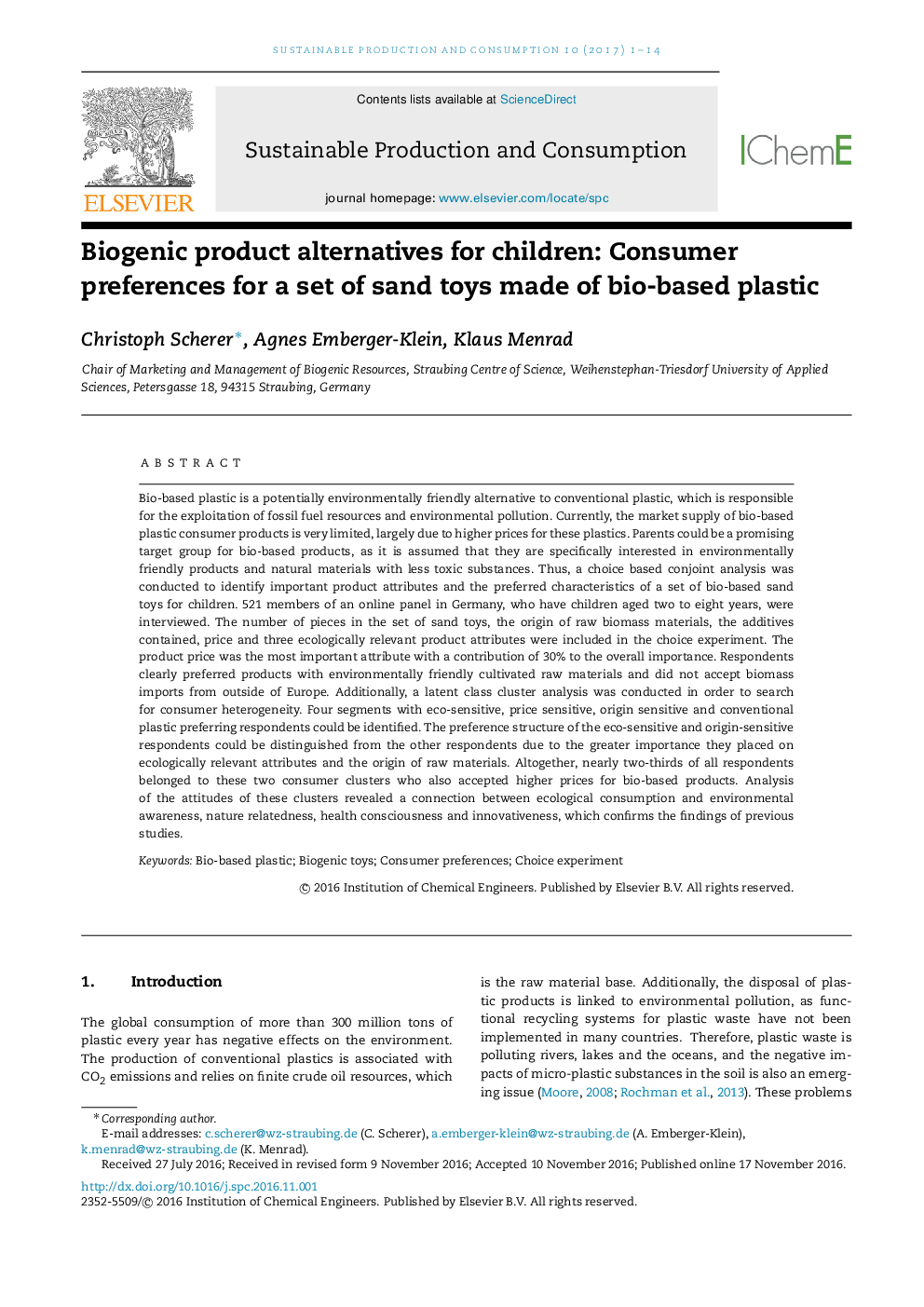| کد مقاله | کد نشریه | سال انتشار | مقاله انگلیسی | نسخه تمام متن |
|---|---|---|---|---|
| 4999500 | 1460560 | 2017 | 14 صفحه PDF | دانلود رایگان |
- Parents in Germany are interested in sand toys made of bio-based plastic.
- Product price is very important and price premiums limit respondents' interest.
- Eco-sensitive parents accept higher prices, but require high ecological standards.
- Personal attitudes influence respondents' preferences for bio-based sand toys.
Bio-based plastic is a potentially environmentally friendly alternative to conventional plastic, which is responsible for the exploitation of fossil fuel resources and environmental pollution. Currently, the market supply of bio-based plastic consumer products is very limited, largely due to higher prices for these plastics. Parents could be a promising target group for bio-based products, as it is assumed that they are specifically interested in environmentally friendly products and natural materials with less toxic substances. Thus, a choice based conjoint analysis was conducted to identify important product attributes and the preferred characteristics of a set of bio-based sand toys for children. 521 members of an online panel in Germany, who have children aged two to eight years, were interviewed. The number of pieces in the set of sand toys, the origin of raw biomass materials, the additives contained, price and three ecologically relevant product attributes were included in the choice experiment. The product price was the most important attribute with a contribution of 30% to the overall importance. Respondents clearly preferred products with environmentally friendly cultivated raw materials and did not accept biomass imports from outside of Europe. Additionally, a latent class cluster analysis was conducted in order to search for consumer heterogeneity. Four segments with eco-sensitive, price sensitive, origin sensitive and conventional plastic preferring respondents could be identified. The preference structure of the eco-sensitive and origin-sensitive respondents could be distinguished from the other respondents due to the greater importance they placed on ecologically relevant attributes and the origin of raw materials. Altogether, nearly two-thirds of all respondents belonged to these two consumer clusters who also accepted higher prices for bio-based products. Analysis of the attitudes of these clusters revealed a connection between ecological consumption and environmental awareness, nature relatedness, health consciousness and innovativeness, which confirms the findings of previous studies.
Journal: Sustainable Production and Consumption - Volume 10, April 2017, Pages 1-14
